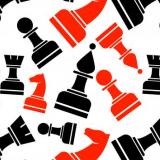I was active in chess during the Fischer championship years, when I was a teenager. I played chess for my high school’s chess team, earning the top board. And I played once a week at a local chess club, back in the era of ticking analog chess clocks with falling flags. Almost all the games were played with time controls of five minutes, per game, with no time increments or delays. My skill level did not improve from the games I played under the fast time controls.
As my teen years came to an end, college and full-time employment caused me to put chess aside for decades.
In the early 2010s, my work schedule became somewhat less demanding, and so I returned to playing chess. But I had the same dilemma. Players at the local chess club played games at blitz or near-blitz speeds, so I started looking for an alternative.
I read some books by Dan Heisman, promoting the benefits of chess matches played at slower time controls. Heisman made sense to me, so I ran a Google search for “slow chess” and found the Slow Chess League (slowchessleague.org). I played one or two online chess games at slower time controls versus other SCL players on the Chess.com website each week, for about five years, until SCL discontinued managing negotiated match times.
Nowadays, I play Daily Chess games (1-14 days/move). I generally keep about twenty games in progress at any one time. Chess sometimes feels more like solving puzzles at these slower time controls, rather than an actual battle with an opponent. But it remains a fun competition. I've put a lot of effort into this format, and have crept up to a 1900 rating. As long as the games are fun and I feel like I am putting in an earnest effort to win, I will keep playing.





